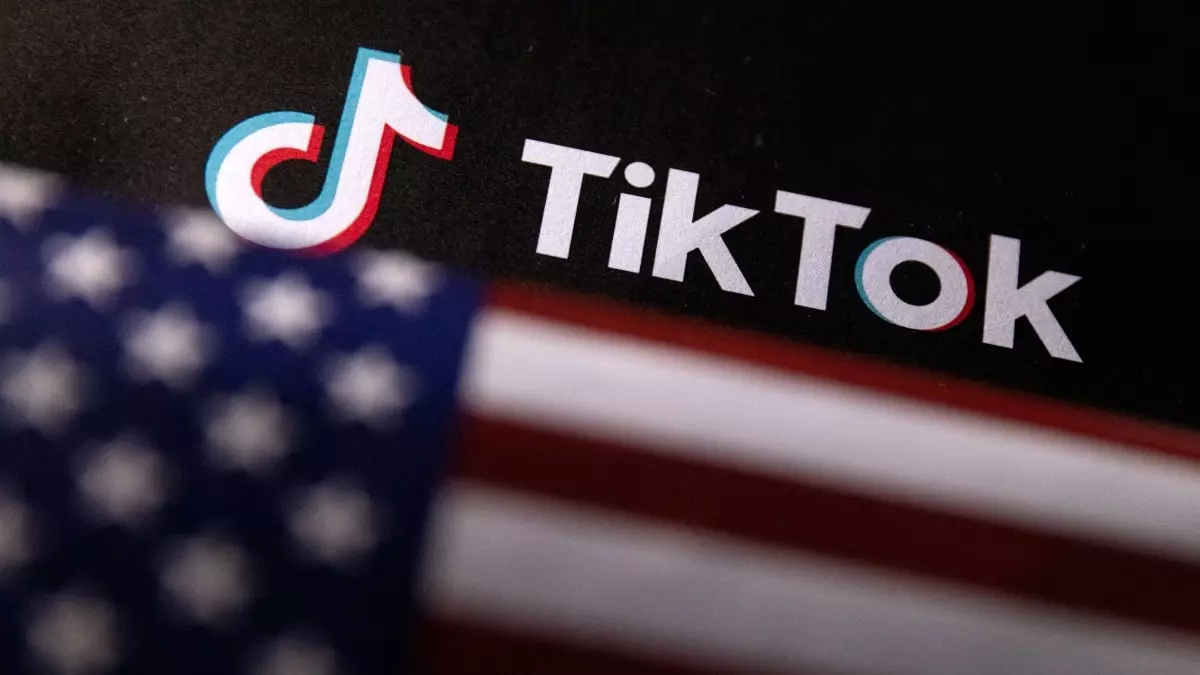As the clock ticks for TikTok in its existential fight against a potential US ban, the passage of legislation mandating the social media platform’s Chinese owners to divest has propelled the app into a whirlwind of uncertainty. The 270-day countdown which began with President Joe Biden’s signature on Wednesday signifies a pivotal moment in the fate of the beloved video-sharing platform. TikTok and ByteDance are gearing up for a fierce battle, with promises to challenge the measure on the grounds of infringing upon the free speech rights of its millions of US users.
The concerns surrounding TikTok’s Chinese ownership have been a focal point in Washington for years, with bipartisan voices expressing unease over potential national security risks. Claims have surfaced alleging that the Chinese government utilizes TikTok as a propaganda tool and may seek access to US user data, contentions that both ByteDance and Beijing officials vehemently deny. The looming legal showdown has cast a shadow of doubt over the future of TikTok’s US user base, creating an air of uncertainty for content creators, influencers, and businesses reliant on the platform for engagement and brand visibility.
While advocates of the passed federal bill have confidence in its legal standing, critics argue that the First Amendment poses a significant obstacle to enforcement. The implications of restricting a foreign communication platform used by US citizens for interpersonal interactions present a unique set of challenges that could complicate the legal landscape. Recent legal battles in states like Montana highlight the contentious nature of attempting to ban TikTok, raising questions about the constitutionality of such measures and the repercussions for free speech rights.
As ByteDance contemplates a potential divestiture of TikTok, stakeholders are bracing for an arduous legal process that could stretch over a year. With hopes of securing a restraining order to contest the legislation, TikTok’s parent company is prepared for a protracted legal battle to defend its interests. TikTok’s head of public policy for the Americas has affirmed a commitment to fighting against the ban, underscoring the company’s determination to navigate through the turbulent regulatory landscape.
The intersection of politics and technology has further complicated the TikTok saga, with the signing of the bill by President Biden setting the stage for potential policy shifts. The divestiture deadline preceding the next presidential inauguration offers a window of opportunity for the new administration to evaluate progress and potentially extend the deadline. Former President Trump’s newfound opposition to a TikTok ban underscores the volatile nature of the debate, hinting at the broader implications on competitive dynamics within the tech industry.
Amidst the regulatory upheaval, TikTok users are grappling with the uncertainty surrounding the platform’s future, while content creators and businesses are reevaluating their strategies. The strides made by TikTok to safeguard US user data and its collaboration with tech partners like Oracle underscore the platform’s commitment to security and compliance. Despite the looming specter of a ban, many users are hesitating to abandon TikTok altogether, underscoring the platform’s enduring appeal and the challenges faced by those who depend on it for economic opportunities.
The battle to save TikTok is far from over, with legal, political, and economic challenges shaping the narrative of the platform’s future in the US. The clash between national security concerns, free speech rights, and corporate interests underscores the complexities at play in regulating global social media platforms. As the clock winds down on TikTok’s fate, the resilience of its users and the adaptability of the industry will be tested in navigating the uncertain terrain ahead.


Leave a Reply
You must be logged in to post a comment.